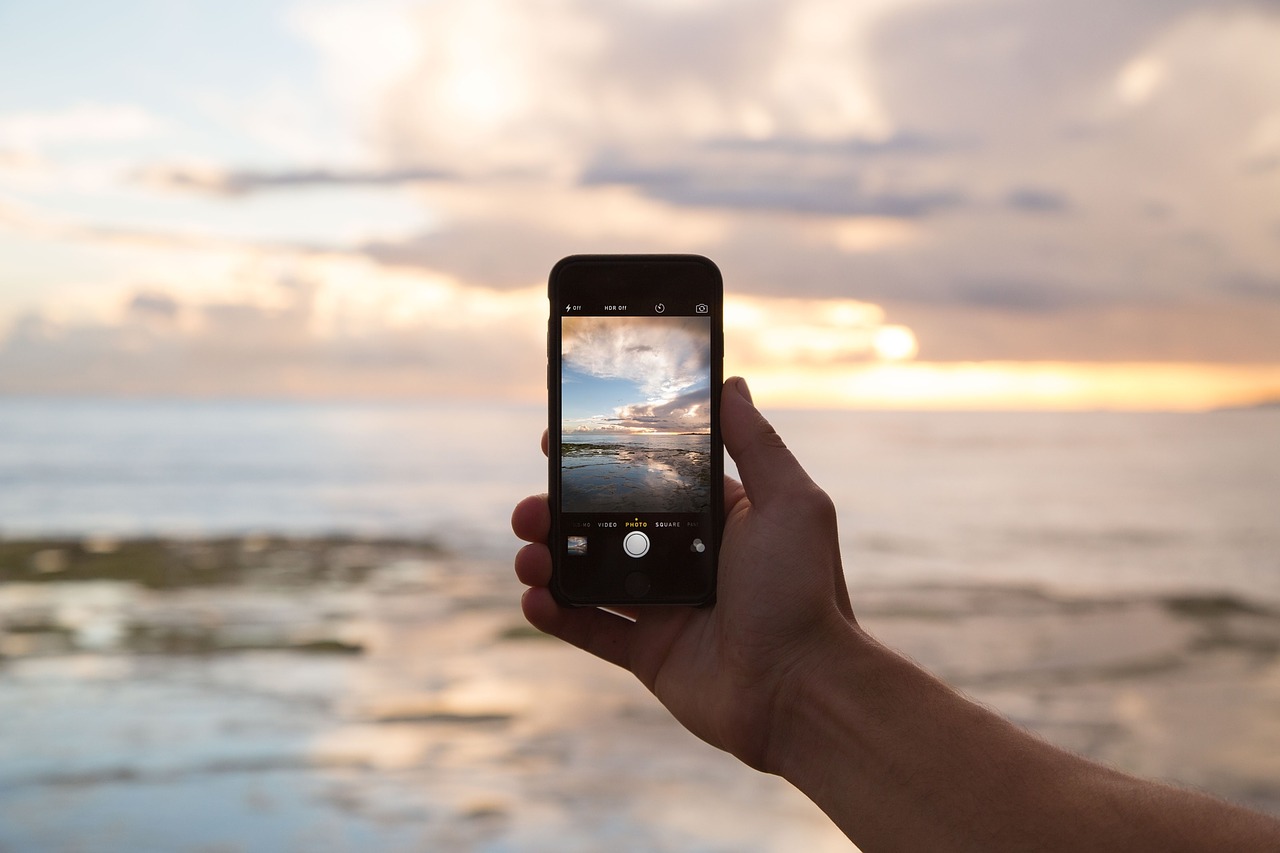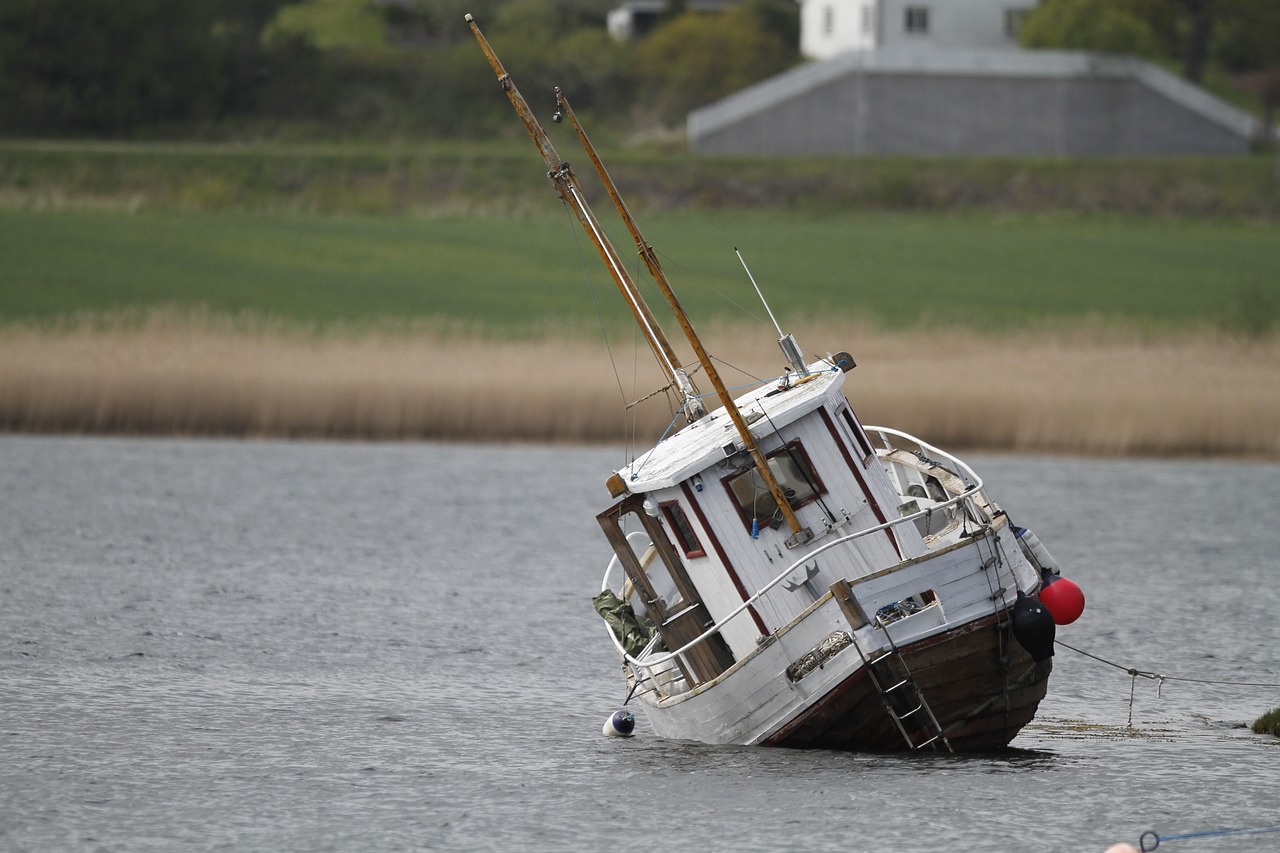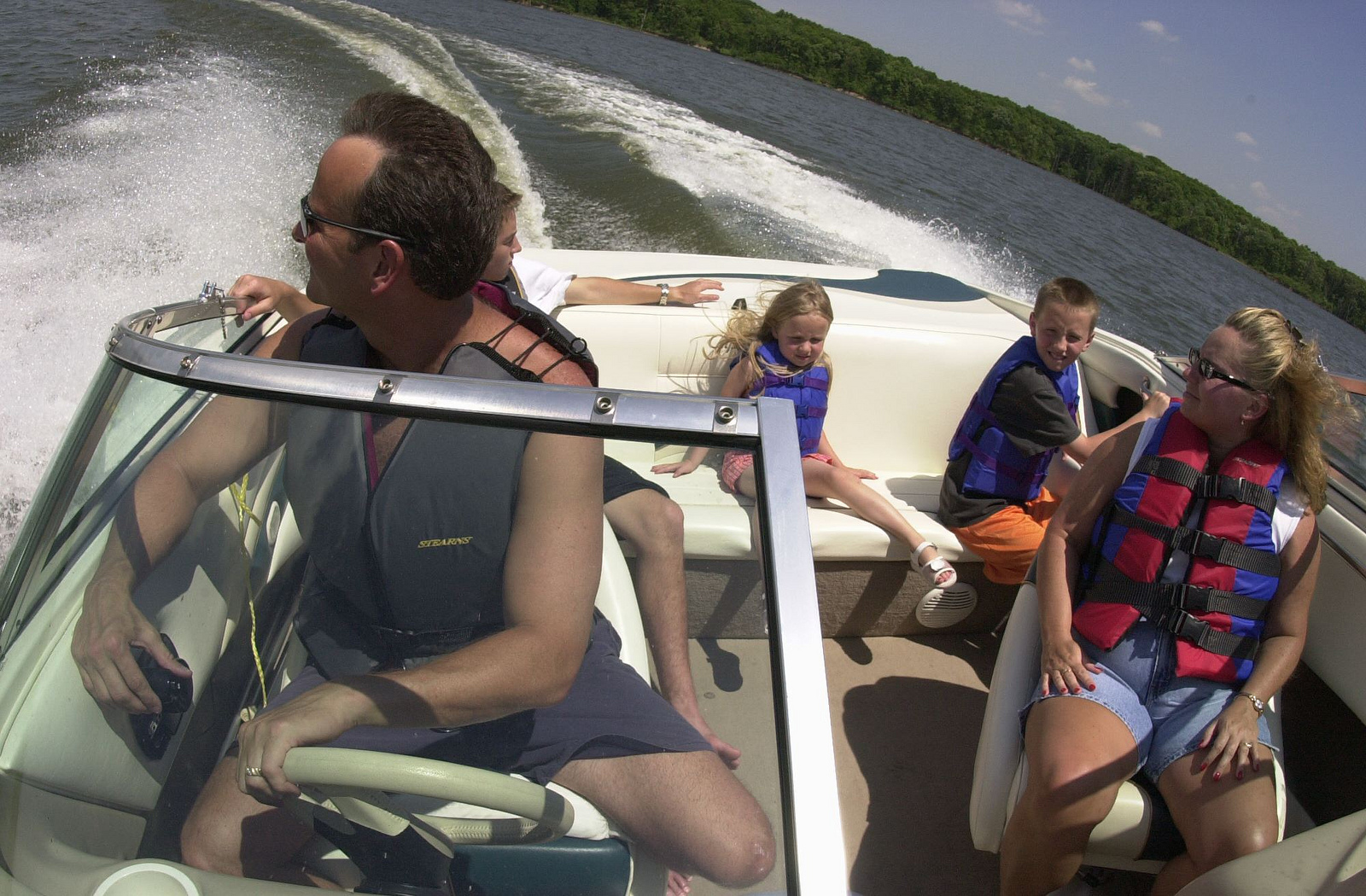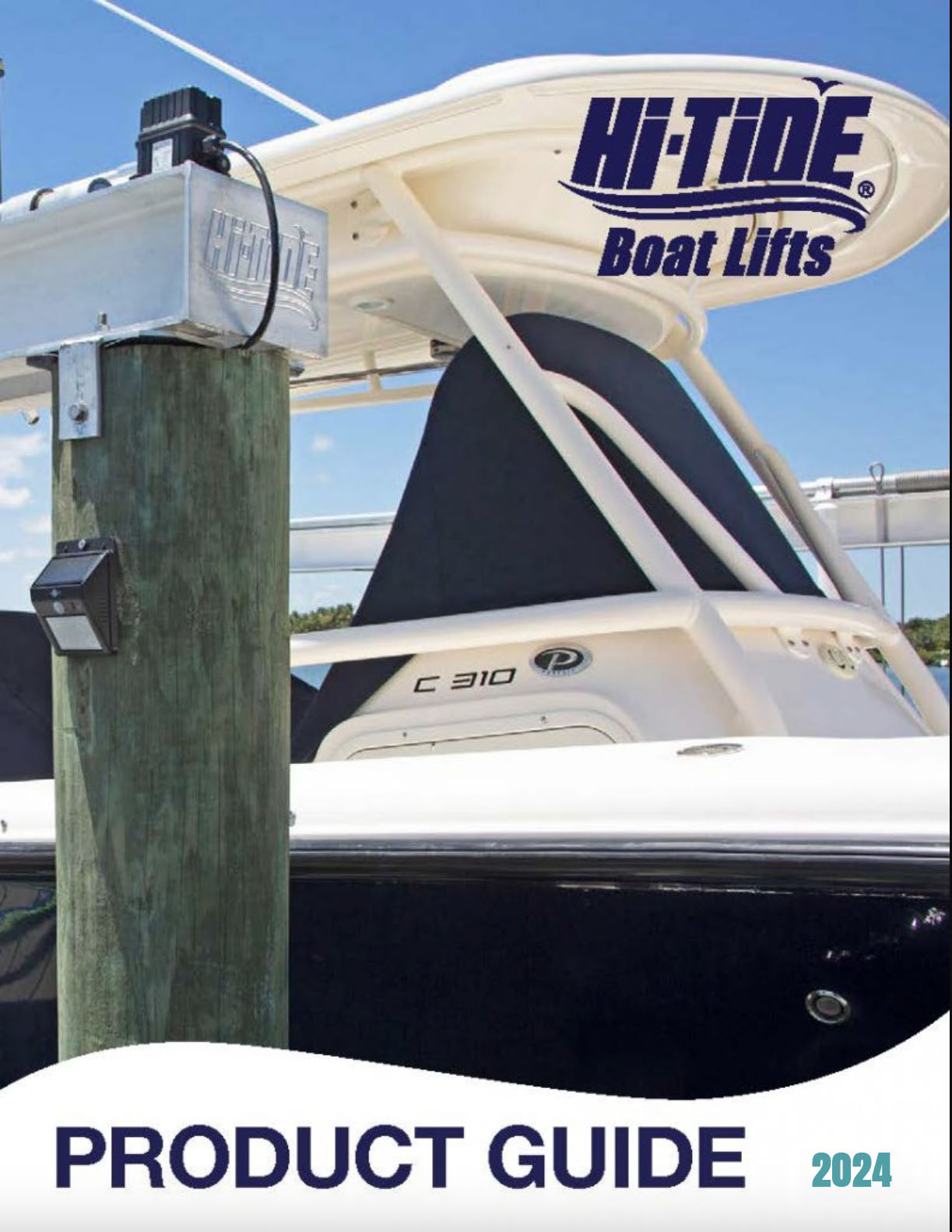
We have all seen them; people slow to notice a changed streetlight or swerving between lanes with their heads bowed, transfixed on the glowing light of their cell phone like a moth to flame. Texting, updating social media or yes, even talking on your cell phone is extremely dangerous and downright irresponsible to yourself, your passengers and everyone you encounter while on the road.
You rarely hear much about the dangers of texting and boating, however. So, is texting, talking and Tweeting as big a distraction once you hit the water? Let’s unpack the topic a bit.
Distracted Boating Facts and Factors
- Boating requires focus at all times. Whether it is looking out for fellow boaters and obstructions or keeping track of the weather and your charted course, boaters are forced to already multitask at an equal or greater level as drivers.
- Even the U.S. Coast Guard has been reportedly cracking down on crew member texting and talking while operating vessels after multiple crashes, thought to be caused by distracted boating.
- In 2010, the National Transportation Safety Board began a movement to cut down on both distracted driving and distracted boating, especially within U.S. Coast Guard crews.
- In 2014, Florida led the country in boating accidents and deaths, with distracted boating among the top causes of accidents.
Much like distracted driving, it is rather difficult to pinpoint all of the instances that were directly caused by cellphone use. Regardless, it only takes common sense to realize that operating a vessel or vehicle of any size can be dangerous if your full attention is not on the safety of yourself and those around you.
So, the next time you’re on the water, consider putting your phone on silent and taking advantage of the relaxation and fun that us boaters know and love.

From a big exam to getting through tax season without a migraine, most things in life are made substantially easier with a bit of preparation. Boating is no different, and by following a few tips and preparing for the worst, you can ensure your safety and the safety of your passengers in the catastrophic case of a sinking boat. It may not be fun to think about, but these tips may just save your life if tragedy strikes while you’re out at sea.
Preparation
According to How Stuff Works, the most common reasons why boats sink include:
- Flooded Bilge: As the lowest point of your boat, it’s common for water to collect here. Many boaters opt for a bilge pump that will automatically turn on once the water level in the bilge reaches a certain height.
- Missing Drain Plugs: An incredibly easy oversight to make is to forget to return unplugged drain plugs once your vessel is stationary. Many boaters keep their plugs in an area that’s always in sight, as an easy reminder to put them back.
- Collision: Know your route and take it slow. Make sure to check the weather report before hitting the water, know the depth of waters you’re charting and always stay vigilant while in unfamiliar waters.
- Low Transom: Another preventable sinking risk is a low-sitting transom. Avoid unnecessary risk by avoiding storing heavy items in the stern of your ship. Also, never anchor from the stern side, as this may significantly lower your transom.
- Engine Leaks: Checking your engine for leaks, especially the cooling system, is important to ensure that corrosion or broken tubing isn’t pumping gallons of water into your vessel once you embark.
Action
Actions to take if your sinking boat is beyond salvage:
- Remain Calm: This may seem like an impossible task, but panicking will only lead to chaos on a sinking boat. Study up on your boat safety drills and be ready to give or receive clear orders on what your crew and passengers next actions should be after the ship takes on water.
- Get Safety Equipment: There are some vital items that could be literal lifesavers if you’re forced to abandon ship. Always keep safety items onboard and in appropriate numbers for all passengers and crew, including life vests and emergency locator beacons. A popular option is to have an “abandon ship bag” ready and onboard at all times, while ensuring that all passengers wear personal floatation devices.
- Call for Help: If you have the time, and only if, call mayday on the VHF channel one-six to report your emergency to the Coast Guard. This marine channel is under constant monitoring and may help ensure that you and your loved ones receive the emergency assistance you need. As a backup, always have emergency locator beacons on-hand.
It’s not something any boater wants to think about, but it is also of utmost importance that you know what to do in the case of a sinking boat. Stay informed on time-tested safety measures and always follow the laws and regulations that keep us all safe while on the water.

“Boating is too expensive.” “Boating is too hard.” “I caught an 8-foot marlin off the coast of Panama in the early 1980’s.” Boating culture is full of tall tales. Unfortunately some of these myths enter the echochamber with ill intent, keeping people that would otherwise love their time on the water landlocked in fear and doubt based on exaggerations or lies. Check out our hand-selected list of some big myths that surround boat ownership, as well as an important reminder for those already on the water.
Boat Ownership Myths
- Pay to Play: Is buying a boat the surefire way to end up in debt that many (often non-boaters) claim it to be? We certainly hope not, but let’s break down some facts. Boats do require an investment of time and money, due to upkeep costs, insurance, gas and more. However, if you place the costs of boat ownership in comparison to other leisure activities such as a season of skiing or golfing with your family, the cost is actually smaller than you’d think. With many boat dealers offering helpful financing options, there may be less between you and the boat of your dreams than you’d think.
- Boating for Dummies: Isn’t boating extremely difficult and complicated to do without years of experience? Well, like most skills, it’s often easier the more often you do it. This is where the widely available safety and boating basics courses can make a big difference in your confidence and competence when setting off on your first boat trip.
- DUI Still Applies: Drinking and boating isn’t nearly as dangerous as drinking and driving, right? Wrong. According to Boat U.S. Foundation, nearly half of all boating accidents involve alcohol. As mentioned above, driving a boat is skill-based activity. If your skills are hindered due to inebriation, you cannot captain your boat as safely or efficiently as you could sober. Florida law doesn’t mince words: boating with a blood-alcohol level of .08 or higher is illegal.
The bottom line is, we love boating and would love nothing more than to share that passion with others interested in jumping into this wonderful hobby and lifestyle. Do your research, learn the hard facts and, hopefully, we’ll see you on the water soon!

Though boating is a pastime that we love, it does come with some inherent dangers that any boater should be prepared for. How do you prepare for emergencies on the water? Well, a little education and a lot of practice can go a long way when staying safe on your next boating trip. It may not be the most fun activity to do on your day of leisure, but practicing regular boating safety drills is vital to the safety of yourself, your friends and loved ones while on the water.
Important Safety Drills to Practice
- Fire Drill: Unlike the drills you remember from grade school, these fire drills test to ensure you know your extinguisher placement on all decks, as well as illustrating if there are enough extinguishers onboard to avoid being trapped by potential flames. Unlike on land, there is nowhere to run if your boat becomes overwhelmed with flames. Run through some worst-case scenarios to make sure your boat can handle the heat.
- Man Overboard (MOB): It’s a nightmare scenario, and one that can happen all too often; a passenger falls overboard. In the case of a MOB, it’s vital to not only know what to do (such as keeping the MOB in sight at all times and how to maneuver your vessel properly), but also to demand that all passengers, and yourself, wear life jackets. Practice this scenario by tossing a spare life jacket into the water and seeing if you and your passengers can safely and quickly rescue the dummy MOB.
- Sinking Ship: In the extreme circumstance that your vessel is going down, you must have the knowhow and preparation to abandon ship quickly and safely. Common life-saving items include a fully stocked ditch bag and Personal Location Beacon (PLB) or Emergency Position Indicating Radio Beacon (EPIRB). In a drill scenario, make sure you would be able to send out a distress call, turn on your beacon and grab your ditch bag without issue.
Though boating is incredible fun for people of all ages and from all walks of life, it’s a recreational activity that requires you to respect its inherent dangers. Ensure that you not only have vital safety equipment (such as life jackets, fire extinguishers and location devices) but can also use them in an extreme, emergency situation. Keep yourself and your loved ones safe by practicing safety drills and following boating best practices while on the water; It may just save your life someday.





